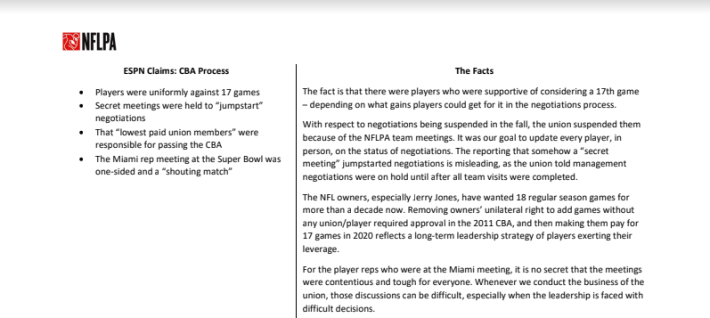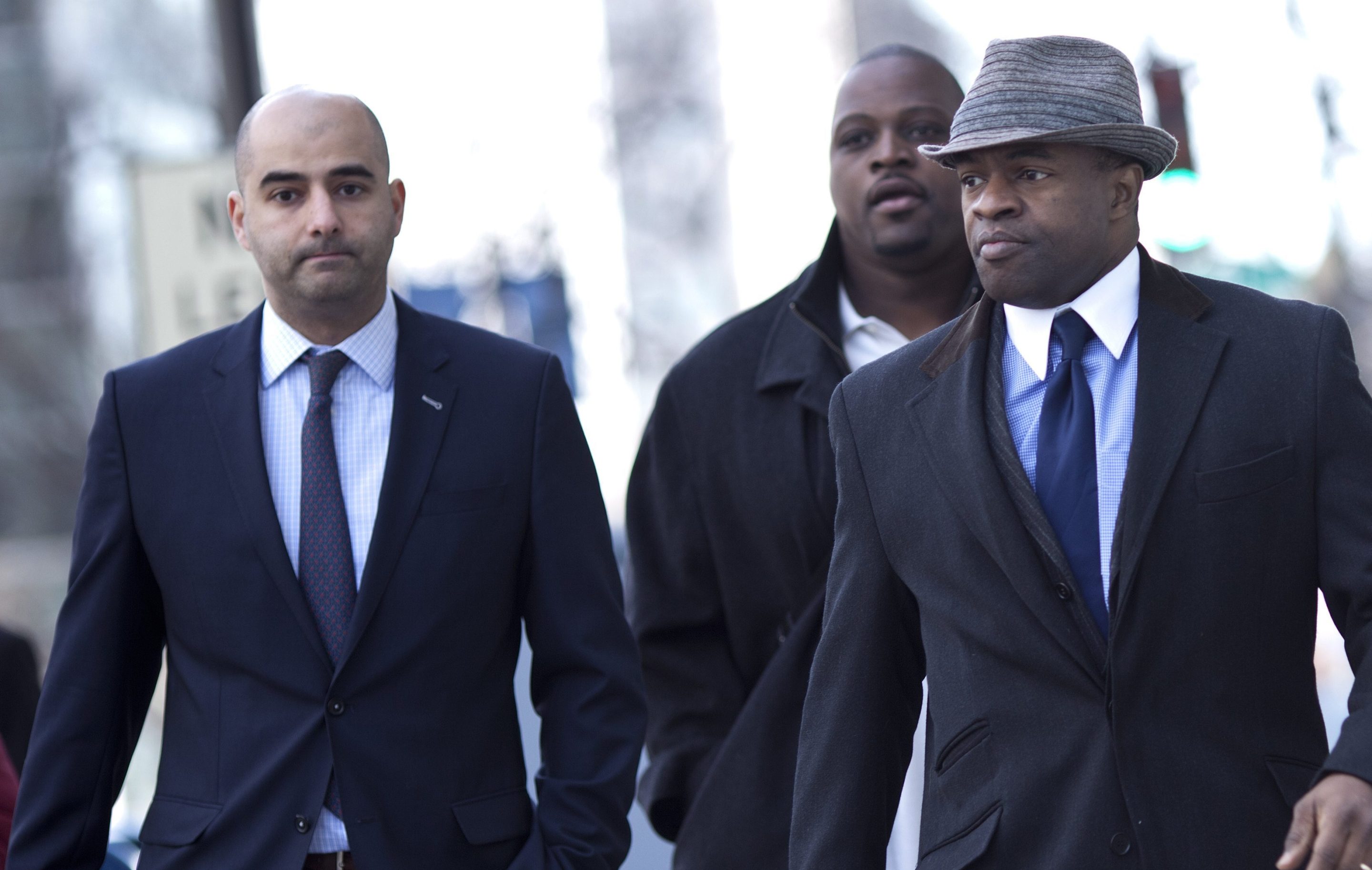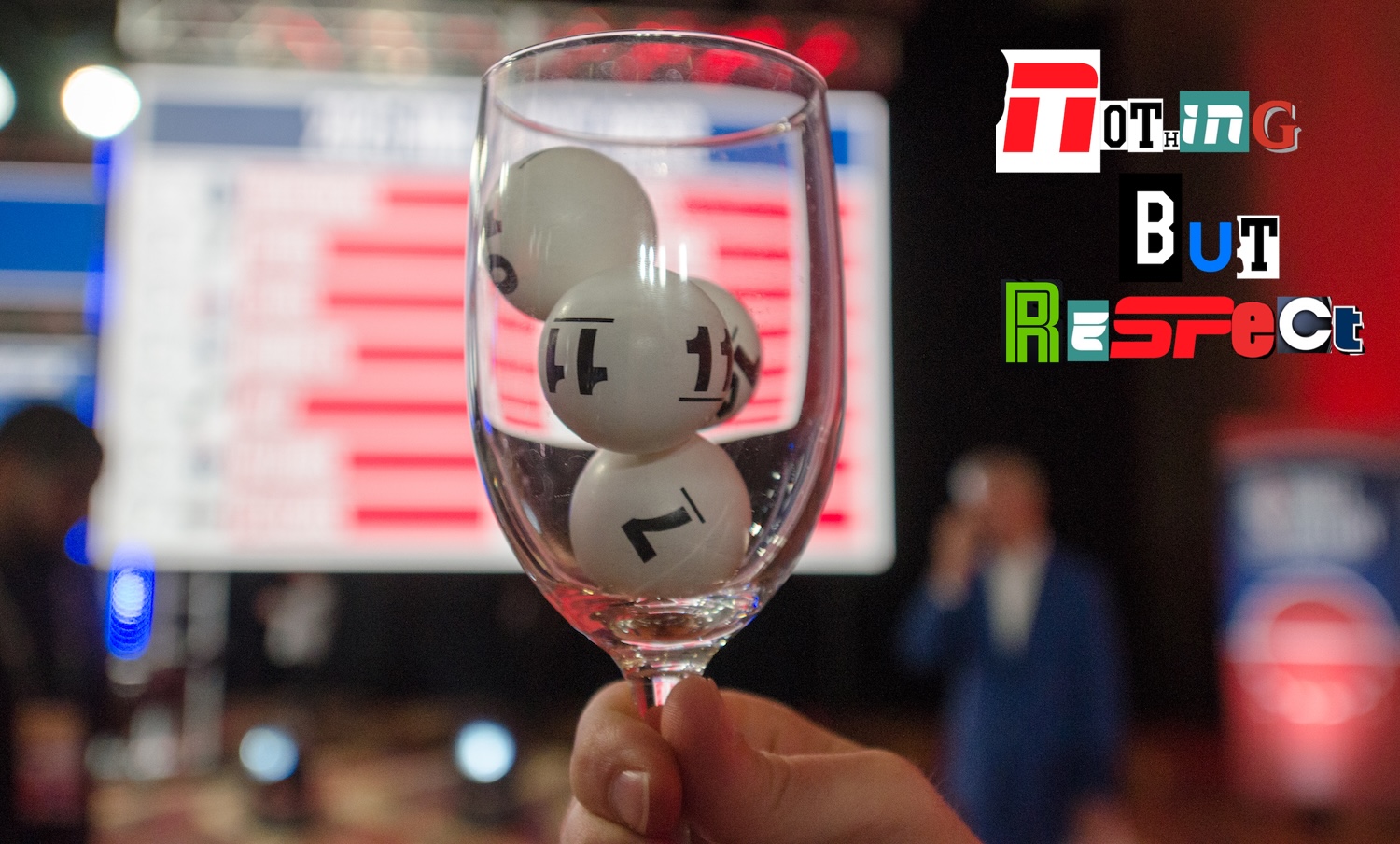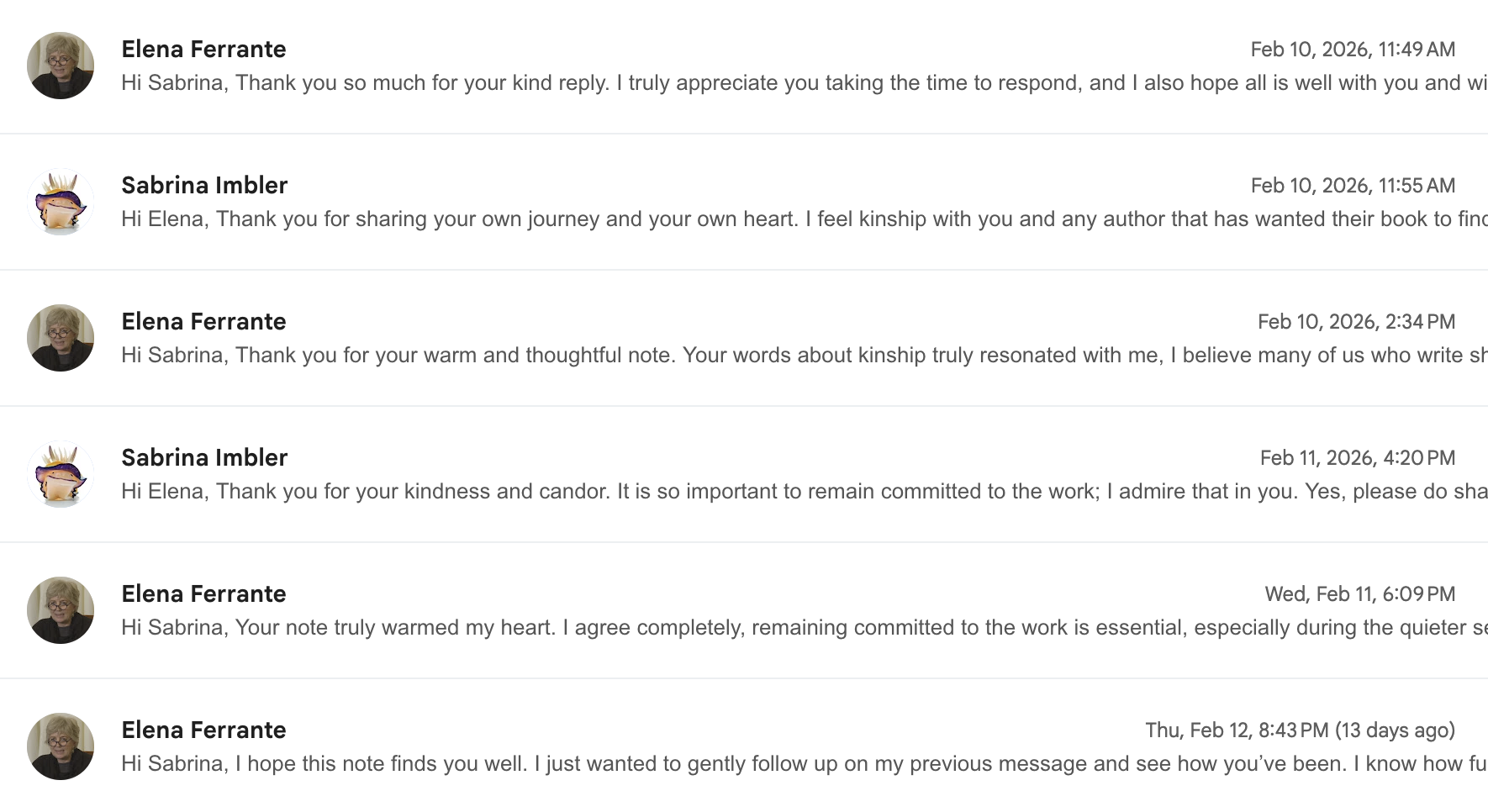It’s easy to think that the NFLPA is the weakest union among the big four in sports. It’s easy to argue that, by completing a full pandemic season and cashing in with $110 billion worth of TV deals as their reward, NFL owners wrung their workforce dry as surely as I have the minivan sitting in my family’s driveway. The owners even managed to cram in extra playoff games AND a 17th regular-season game starting in 2021. So it’s very easy to imagine Jerry Jones jacking off into his own ten-gallon hat at this all-purpose windfall, likely because Jerry is doing exactly that as we speak.
A February schlongread from the ESPN tag team of Don Van Natta and Seth Wickersham—rife with anonymous quotes from seemingly owner-friendly sources—went a long way toward establishing the loose conventional wisdom that NFLPA head DeMaurice Smith got rolled by his conference table adversaries, rigged the union election process in his favor, and cost his membership impossible amounts of money that they may never recover. It’s easy to take that report as gospel.
It’s George Atallah’s job to make all of those assumptions far LESS easy. Atallah is the Assistant Executive Director of External Affairs of the NFLPA and acts, as least publicly, as right-hand man to Smith when it comes to clarifying and defending the gains players have made during Smith’s tenure. Neither Smith nor Atallah were big fans of that ESPN report. They even sent a seven-page fact sheet to all NFL players refuting Van Natta’s and Wickersham’s claims one by one. Here is a sample from that document:

So when I asked Atallah if I could interview him about the current state of the NFL—including the pandemic season fallout, labor relations, the 17th game, Deshaun Watson, and everything else—he was more than happy to accommodate me. Atallah is an elegant man, as far as union pit bulls go, which makes it challenging to discern when he's genuinely advocating for NFL players and when he's deftly selling you on the job that he and Smith have done on behalf of those players. Both of those things are part of Atallah’s job description, and are not always in perfect alignment. The truth of who “won” or “lost” the last round of CBA negotiations is certainly murkier than what ESPN or Atallah would have people believe. But hearing from both sides of the bargaining table at least gives us some ability to see through that murk.
This interview has been edited for length and clarity.
Ian Rapoport reported just now that there are ongoing negotiations between the NFL and the union about the parameters of this offseason. I know that OTAs are involved in those talks, but can you tell me what else exactly is being negotiated?
What I can tell you is if there is not an alternate agreement by the April 19, the league has the right to impose the voluntary offseason.
But those workouts aren’t really voluntary, right?
There are a number of players who have bonuses attached to workout appearances, and if they show up for 80 percent of the workouts they get X amount of money and that kind of thing, but that's a very small percentage of our membership. I mean, why would you go in April and May?
The restrictions during last offseason demonstrated how unnecessary a lot of those voluntary workouts and a lot of mandatory ones in training camp were. Has there been any effort on the union's part to adjust the CBA in that regard permanently for the next 10 years?
That’s something that JC Tretter, our union president, has signaled that he wants to do. He lays out the case for not having any offseason workouts, because it didn't impact the quality of the games. It made the players fresher. I think most players preferred it, frankly. If you're a starter, why put your body through the craziness of training camp, the travel for preseason, all of that stuff?
Did lower-tier players, guys who are making the minimum, feel similarly? Or did they feel like, “I've lost a chance to cement my job without being in front of coaches”?
There was definitely some of that sentiment expressed when we were going through last year's set of bargaining talks. But obviously the pandemic colored everything that we were doing.
Now there's this false sense of security that everything can go back to normal because vaccines are rolling out, when the reality is we're not out of the woods yet. We still have ridiculously high infection rates in America. We're not testing every day anymore, or players are given the option to test every day, and you're putting them back in a building at a time when the numbers are on the brink of going back into another spike.
Roger Goodell said publicly that he thought that 2021 essentially would be a normal season. Full attendance and all that stuff. How did you feel when he said that?
Let’s hope he’s right.
Did you think it was responsible for him to say that?
Uh, I just hope he's right.
Were you happy with how the NFL handled the 2020 season? No players died, but many were infected and could've died.
We advocated for the best possible health and safety protocols we could. It was never about risk elimination. It was always about risk mitigation. When we started negotiations back in April or May of last year, we hung everything we could on health and safety. Their starting point was wanting the players to take an escrow, like other sports had done, right? Let's make the players finance our season.
So we were basically like, Hell no, we're not doing that. Player leadership took a position of We're not even going to talk about money until we get to help put the safety protocols in place. Once we did that, we had to accept that they had to the right to open the doors. You never want to have even one player get infected, but at any point in the season, our seven-day average was never above two percent.
Dumb question, but could the owners have forced the players to play regardless in 2020, no matter what? We're not bargaining with you. We're gonna open the doors and it is what it is.
They could have, and the salary cap this year could have been, you know, $160 [million] had we done that. I think they realized, thankfully, that their best bet of getting through a season was to agree to simple stuff like daily testing and contact tracing, and tweaking those things as we went through the season.
Were you happy with all of those protocols once they'd been implemented?
Yes.
How was it for the players? Did they feel safe going to work every day? Or did they feel constricted?
There were definitely players who felt unsafe. We've got positive cases on our team. Why are we getting on a plane? Why are we playing this game? Why are we moving this game? Those are all questions that were not unexpected, frankly.
Will the union mandate all players get the COVID vaccine?
The short answer is no. The longer answer is that the union does not mandate things like vaccines. We certainly believe it is important for everyone in our business to get the vaccine both for their own safety, the safety of their families and to set an example for good public health, but we do not expect they will be mandated.
You mentioned that if owners had rammed the season through without any input from the players, the cap would have been $160M. But the cap is still lower than it was a year ago. And I know contract rollovers mean "the number" isn't necessarily The Number. However, in light of the TV deals that are coming, owners didn't really have to lower the cap at all.
But then how else do you account for the revenue shortfall? They wanted us to eat all the losses upfront. We didn't want to do that. There were revenue shortfalls that we all had to account for, and those shortfalls are going to be spread out over three years as opposed to one. And those TV deals don't come in as big as they do without us having played a full season.
Do you feel owners were transparent about those revenue shortages?
We can actually audit the revenues. So if there's a penny short or a penny long, we have the right to audit revenue. We started the process, but they have no reason to lie basically.
You said the TV deals wouldn't have happened without the playing of a full season in 2020. Do you feel like the players are getting an appropriate amount of that payoff given the sacrifices that they made?
Some of the reporting on the TV deals was intellectually dishonest, because it didn't take into account the fact that we have a revenue-share deal. Every dollar that they generate from TV or [national] sponsorships or tickets or jerseys or anything, the players get a percentage of. So we’re glad that the TV deals came in as high as they did.
Do you think all the players feel that way, or do they have misconceptions about that split?
JC has done a great job of communicating the reality of the situation to not just players, but to members of the media and to agents. We've got a union president who's willing to engage and take shots at people who put out misinformation. I think that's really important in this environment. As you know, I do some of that myself.
It's incumbent on us to make sure that everybody's got the right information. We get an equal share of that cash. So no reason for us to get upset about it. And we know why the cap is lower. There were $4 billion in lost revenues this past year. It has to be accounted for, and the union should be proud that every single player got paid in full during the COVID season when we know what was going on in other sports.
How do you feel morale is within the union right now?
We have 2,000 members and the fact that there is a high level of engagement on our issues tells me that at least there is not apathy, because the thing that can kill a union is apathy. We certainly don't have that.
Oftentimes social media is an outlet for not just players, but everybody, to complain. But we've had a lot of really positive conversations with players about health and safety and how we were able to get through the season. So based on the level of engagement and the lack of apathy, I'd say it's very high.
Has a 17-game season affected that in any way? Because Alvin Kamara said it was dumb as hell, and I've seen you publicly correct players about the deal. I believe that the negotiation was that it was a 1.5 percent increase in the revenue split in exchange for that 17th game. Now you can tell me if that's wrong or not, but does the rank and file feel like that was a worthwhile tradeoff?
There wasn’t a 1.5 percent increase in exchange for 17th game in the context of a collective bargaining agreement. That’s like saying we traded the 17th game for more marijuana use. Those two things are not directly correlated. What the general public misses about collective bargaining is often that it's not a single, one-issue-to-one-issue negotiation. It's not like we walk in a room and go, “OK, we want an extra two percent.” And they go, “Well, you're going to play an extra game.” That's not how this stuff works.
The CBA is almost 400 pages long and governs wages, hours, working conditions, benefits, rights, commissioner, discipline, drug, policy alum, and everything in between. So it was, what are you willing to give up to make gains on the issues that you really care about? Owners were able to go to 18 games before 2011. We took that right away from them in the 2011 CBA. We then sold a 17th game to them for not just an extra percentage point plus, but all the other increases that we were able to win on behalf of our members. More players voted for it than didn't, and here we are.
You get to lose a preseason game out of this deal. If I were a player, I would say, OK well, why are we still playing three preseason games? Why not two? And what's to stop owners from doing 18 games?
They can't do 18 games. The CBA prevents explicitly prevents them from adding any regular-season games through the life of the deal.
You have to know that’ll be something they want in the next CBA though.
Yes. But in 2031 or 2030, that group of players has to make a decision. Same as this group of players did. What are they willing to do to prevent that from happening? Or what are they willing to get for it?
You see the Brandon Marshall video from earlier this week?
Yes. The one about NBA guarantees and all that.
Do you believe that's a common misperception among players and former players that athletes in other sports don't have guaranteed contracts?
The general misperception is that NFL players don't have guaranteed contracts, which many of them do. The other misconception is that somehow collective bargaining agreements make guaranteed contracts custom and practice, which they don't do. It's not like the NBA has guaranteed contracts in their CBA. They don't. Individual players and agents negotiate guarantees.
Why has it been so hard for NFL players to do likewise? Kirk Cousins is the outlier in that the entirety of his contract was guaranteed. Then you have a contract like Taysom Hill’s that's entirely funny money. Why did the NBA get to a point where it was more or less accepted for those contracts to be guaranteed, whereas NFL contracts have a lot of horseshit money in them?
It goes back to negotiations. Kirk and his agent came up with a plan to secure a fully guaranteed contract. They executed that plan. It worked out in the end. Just like in the other sports, it's up to the individual player and the individual agent to come up with the best possible leverage that they can in order to get fully guaranteed money.
Is there any way for you to tell players and more importantly, their agents, that these deals should have more visibly guaranteed money in them? The big thing with agents is that they like having a big number even if the guaranteed money of the contract is far less than whatever Schefter tweets. That's detrimental to players in the long run.
We can only go so far in that. We're not negotiating those individual deals. We have to rely on the leverage ability of the player in the agent versus the club in order to get everything that they need. So for example, there were headlines this year after one of our agent seminars in February where we encouraged agents and players to collude. The reason that we did that is because the labor force can legally collude to raise the standard of their contracts across the board.
Do you feel like they've done that?
Not as much as they should, in my opinion.
De Smith said publicly that the union was monitoring the Deshaun Watson scandal. Can you tell me what entails that monitoring?
Mostly following the news coverage and making sure that Deshaun is represented in any potential NFL investigation.
I can see Goodell putting Deshaun on the exempt list.
I think we've done everything we can in bargaining to chip away at some of Goodell’s authority. There’s a neutral arbitrator in this new CBA. So that power has been chipped away. We're in a world now where these matters have to be taken seriously. But our role as a union is to make sure the player has his full representation and due process rights under the CBA. And we've made no apologies about defending those rights if we have to.
Dan Snyder just bought out the minority ownership of the Washington Football Team, despite the fact that the NFL hasn't formally made public their final report on the workplace toxicity within that team. Does that strike you as a sign that the report's findings will be toothless?
So I'm not being purposefully evasive here; it's just not our place to get involved in what happens with ownership, sales, or management, or what happens with an individual club. But whether you're talking about—let's just tick them off—Irsay or Haslam or Wilf or Jerry or anybody else on ownership with allegations of misconduct … our expectation is that they get treated equally to players.
Do you feel like they HAVE been treated equally to players?
I leave that to everyone else's judgment.
I feel like it is a reflection on players when they have to play for that kind of organization and/or owner. To play for a team that has a cloud hanging over it. Does that ever worry the union that they’ll be tarnished by association when that happens?
Yes. It's not specific to Washington and Snyder. You may remember that when Rush Limbaugh was considering being part of an ownership group. The PA stepped up and said, “This is not a good look for our business.” So we definitely have concerns about that. Look at how we've spoken up against how teams have treated cheerleaders, right? Not just the Bills, but other teams as well. So we have spoken out publicly on those types of issues because they are a reflection on our members. But ultimately, our actions to impact the change can go only so far.
When we quit Deadspin, our union put out a lot of very good statements supporting us. But I was personally not impressed with the actions they took to protect us, because they didn't take any. Now that was a direct employee thing. But I do wonder if there is some form of action beyond a statement that you can take.
Without revealing too much, there are ways that we can apply pressure and that we've tried to apply pressure.
And has it resulted in anything?
Uh, can't go there. But, on a separate note with respect to Deadspin and Defector, it really did break my heart that ownership did that to you guys. I'm glad that you guys took matters into your own hands and have done this. I think you're seeing a lot of other places potentially follow your lead. I mean, look, what's happening at SI. The Boston Globe folks are in a CBA fight. And I think you've heard rumblings about what might happen at The Athletic. This has got a sports connection. I mean, there are all sorts of media outlets and journalists willing to take matters into their own hands, but they also need support from people.
So there are things that we can do and we have done when it comes to the context of the league office and NFL owners. We just have to be delicate about that.
You excited for the 2021 season?
That's in September, right? Everything feels very, very far away. Obviously yes, I'm excited for things to get back to normal. Because I've got to tell you: Whether it's people in my household and my family, or whether it's players in their families, the mental and emotional toll that this has taken on people is going to be lasting and unknown.






